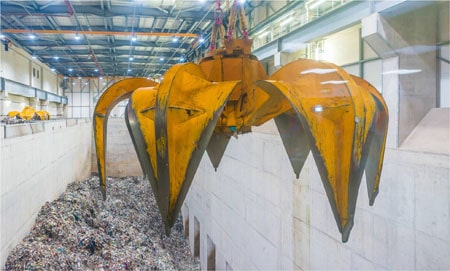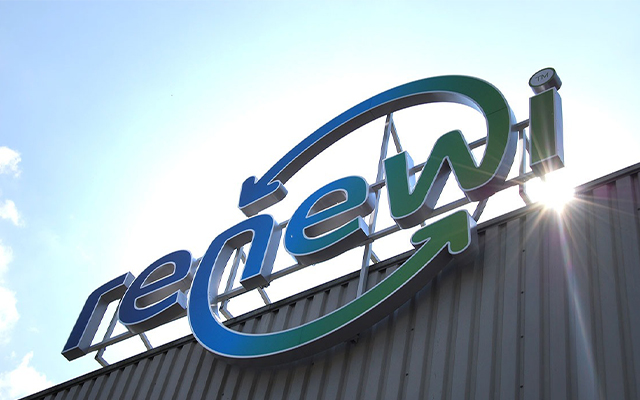The chief executive of Renewi has claimed that if the UK was to impose a tax on energy from waste – similar to the Netherlands’ tax on the import of waste for incineration – recycling would receive a big boost.
Speaking exclusively with letsrecycle.com, chief executive Otto De Bont explained that waste and recycling business will no longer try to “fight” the tax. Instead, he has urged the UK to look to incentivise recycling through measures such as an energy from waste tax.
“For Renewi, it has been a story of two sides. We were financially impacted by the levy but we do see some positives too. We decided that based on the fact that this import levy is in place, to continue to fight against it like some of the incinerators are does not help anybody,” said Mr De Bont.
He continued: “The government has made up their mind and it fits in the overall direction of travel of the Netherlands, trying to further strengthen their position and creating the circular economy, which implies partly that everybody else deal with their own waste.”
Opportunities
Renewi is the company formed after the merger of the Shanks business with its Dutch competitor Van Gansewinkel, considered the largest recycling firm in the Benelux region, which consists of Belgium, the Netherlands and Luxembourg.
In the UK, Renewi holds a number of municipal contracts including the residual treatment contract for the East London Waste Authority (ELWA), which has been impacted by the tax (see letsrecycle.com story).
“If alternatives become even more expensive, it creates more room for recyclers like us to create solutions”
More broadly, Renewi says that today through its entire operations it handles around 15 million tonnes of waste a year, and recycles around 67% of this into “useful recyclates”, which includes everything treated outside of landfill and incineration.
Around 20-25%% is incinerated and generates energy and the rest is sent to landfill, according to Mr Bont.
Turning to recycling, Mr De Bont remarked that an incineration tax could provide an opportunity to increase its recycling rates further, including in the UK.
“If you look at the last several years, we’ve been able to increase our recycling rate at Renewi by around one to one half percentage points per year. And as we look at the future, that’s certainly going to continue.
“That’s driven by the fact that specifically, in the Benelux region, the incentive to recycle has become bigger, as the alternatives become more expensive, either through direct price increases but also through taxation.”
Netherlands
A tax was first implemented for Dutch waste companies sending waste to incineration and landfill in 2015, it almost triples in 2019 with the tax this year extended to imports of waste.
While some have reported this being absorbed across the supply chain, Mr De Bont says it should be used as an opportunity to “skip incineration and go straight to waste to product”.
“On top of an incineration and other waste taxes, governments are also looking currently at carbon taxes that could also apply on incinerators. If those alternatives then become even more expensive, it creates more room for recyclers like us to create solutions that may already be available but at present simply are not economically viable.
“For example in the Benelux, when collecting commercial waste you become the owner of the waste, and what you do with it is for you. So for plastics, metals and drink cartons that were already separately collected in the Netherlands for households, we rolled it out to commercial companies and this meant that it didn’t end up going to incineration.”
He added: “We also started piloting the separate collection of nappies and also invested in a mattress recycling company and plan to open a third factory later this year.”
EfW
Despite calling for the introduction of a tax, Mr De Bont says the UK does need more facilities to help move material away from landfill.
“In the Benelux, the transition from landfill took place 20 years ago where large capacity incinerators were built and landfill was reduced to only the things that you can not treat any other way. This now stands at around 1-2% of all material.
“In the UK, around 15 to 20% of the total waste is landfilled, and it is used as an alternative method for local authorities if they can’t treat it elsewhere, whereas landfill of household waste is banned in several European countries.
“So arguably in the UK you still need longer term incineration capacity, but in 20 years’ time this may not be the case. Recycling techniques are becoming better and better. So if the UK government would create an environment where recycling is more stimulated, then becomes more economically viable, some of that capacity might not be needed, but it is a transition over time.”
The post Renewi chief calls for UK EfW tax appeared first on letsrecycle.com.
Source: letsrecycle.com Waste Managment





